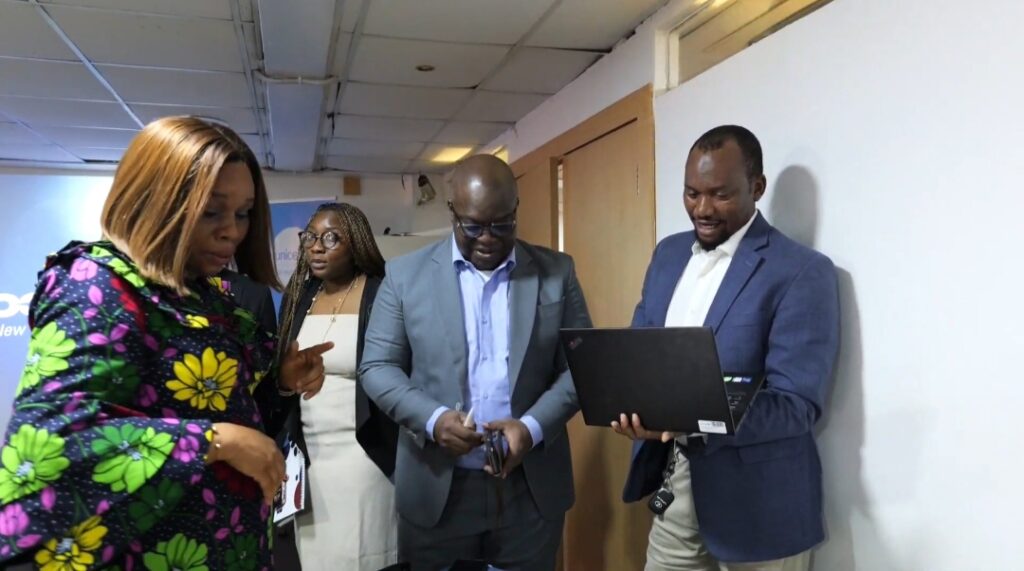Daud Olatunji
As Nigeria joins the rest of Africa to commemorate the 2025 Day of the African Child, UNICEF and other key stakeholders have called for more deliberate and equitable budgeting practices to protect and promote children’s rights across the country.
Speaking at a media dialogue on public spending for children’s rights held in Lagos, Social Policy Specialist with UNICEF, Muhammed Okorie, stressed that while Nigeria has shown commendable commitment to the Sustainable Development Goals (SDGs) related to children, actual implementation and spending remain inadequate.
“States are at different levels of commitment and implementation,” Okorie noted. “Although many have integrated children’s rights into development plans and budgets, the gap between budget allocation and actual expenditure is still wide.
We must not only budget adequately, but spend equitably—reaching the most deprived children wherever they are.”
Okorie emphasised the importance of aligning public spending with children’s needs, citing national and international benchmarks such as the Abuja Declaration, which recommends a minimum of 15% of government budgets for health.
He said actual spending in many states falls short, undermining efforts to deliver essential services like healthcare, education, water, and sanitation to children.
UNICEF also underscored the role of journalists in tracking budget implementation and holding government accountable.
In her opening remarks, Celine Lafoucriere, Chief of UNICEF’s Field Office for Southwest Nigeria, called on the media to serve as watchdogs, helping ensure that public funds allocated for children translate into real, tangible outcomes.
“Today, nearly 50 years after the Soweto schoolchildren marched for their rights, millions of Nigerian children are still demanding access to basic public services.
Despite Nigeria’s ratification of the UN Convention on the Rights of the Child in 1991, many children remain without clean water, proper nutrition, healthcare, or education,” she said.
She described public spending on children as not only a moral and legal obligation but also an economic imperative, noting that well-targeted investments in children yield long-term dividends in national development, human capital, and democratic stability.
Highlighting UNICEF’s collaboration with the Lagos State Government, Lafoucriere said the agency has supported the Ministry of Economic Planning and Budget in creating a budget-tracking tool to ensure every naira spent on children is accounted for.
However, she acknowledged that such mechanisms are still underutilised and require broader stakeholder engagement.
“The real issue is prioritisation,” she said. “There will never be enough budget for everything, but is Lagos—and indeed Nigeria—prioritising its children and youth as the future of tomorrow?”
Echoing similar sentiments, Lagos State’s Permanent Secretary in the Ministry of Economic Planning and Budget, Olayinka Ojo—represented by Director Olufemi Orojimi—affirmed the state’s increasing investment in children over the years.
“The Lagos State Government recognises that investment in children is an economic driver. It remains committed to increasing budgetary allocations and actual expenditures that promote the survival, development, protection, and participation of every child,” Orojimi stated.
He noted that early childhood development remains a key focus of the state’s development strategy, acknowledging UNICEF’s support in strengthening data systems and budget transparency.
Still, participants at the dialogue stressed the need for systemic reforms in budget planning and execution. Okorie urged state governments to adopt a “child-rights lens” when preparing budgets, ensuring meaningful inclusion of children and civil society in decision-making.
“Children may not vote, but they matter,” he said. “Their voices must be heard, and their needs must guide policy. Monitoring and evaluation shouldn’t be afterthoughts. We must track the money from allocation to impact.”
Do you want to share a story with us? Do you want to advertise with us? Do you need publicity for a product, service, or event? Contact us on WhatsApp +2348183319097 Email: platformtimes@gmail.com
We are committed to impactful investigative journalism for human interest and social justice. Your donation will help us tell more stories. Kindly donate any amount HERE




